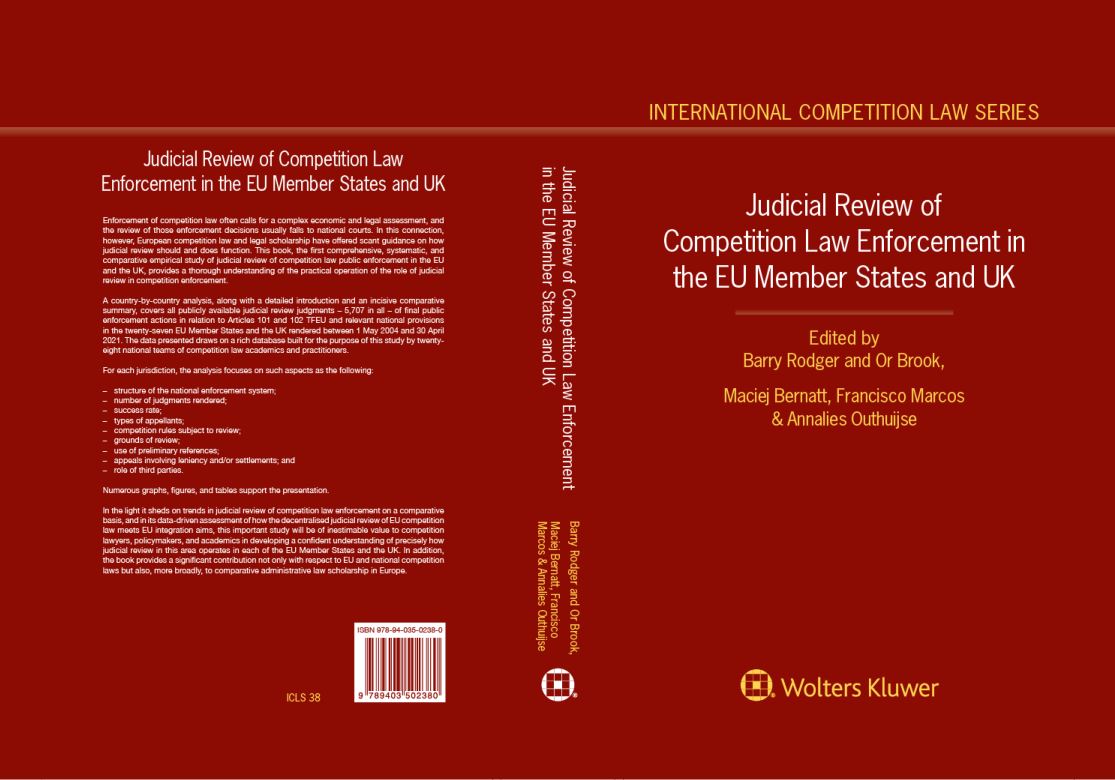About the Project
National courts play a special role in the enforcement of EU competition law. Under the EU enforcement framework instituted by Regulation 1/2003, they constitute the main forum for the review of enforcement decisions taken by national competition authorities (NCAs). This is not a simple task, as the application of the competition rules often calls for a complex economic and legal assessment. At the same time, beyond the trite assertion that judicial review seeks to protect the rule of law, European competition law and legal scholarship have offered scant guidance on the functions of judicial review. The effectiveness of judicial review within the EU legal order, therefore, is often taken for granted, and very little is known about its operation and impact in practice.
This project is the first to undertake a comprehensive, comparative empirical study, mapping out the judicial review of competition law public enforcement in the European Union (EU) and the United Kingdom (UK) to provide a greater understanding of the practical operation of the judicial review role. We undertook an empirical study of all national judgments reviewing the application of Articles 101 and 102 Treaty on the Functioning of the European Union (TFEU) and the national equivalent provisions by NCAs between the entry into force of Regulation 1/2003 in May 2004 and the end of April 2021. Covering 5,707 judgments, the empirical findings are used to:
- comprehensively map out the judicial review practices across the EU and the UK, comparing their quantitative and qualitative aspects across the various jurisdictions, and
- assess the operation of judicial review of the national competition law agencies.
For more information, learn more about our database and methodology.
To find more about the conclusions of the project, see our national and comparative reports.
